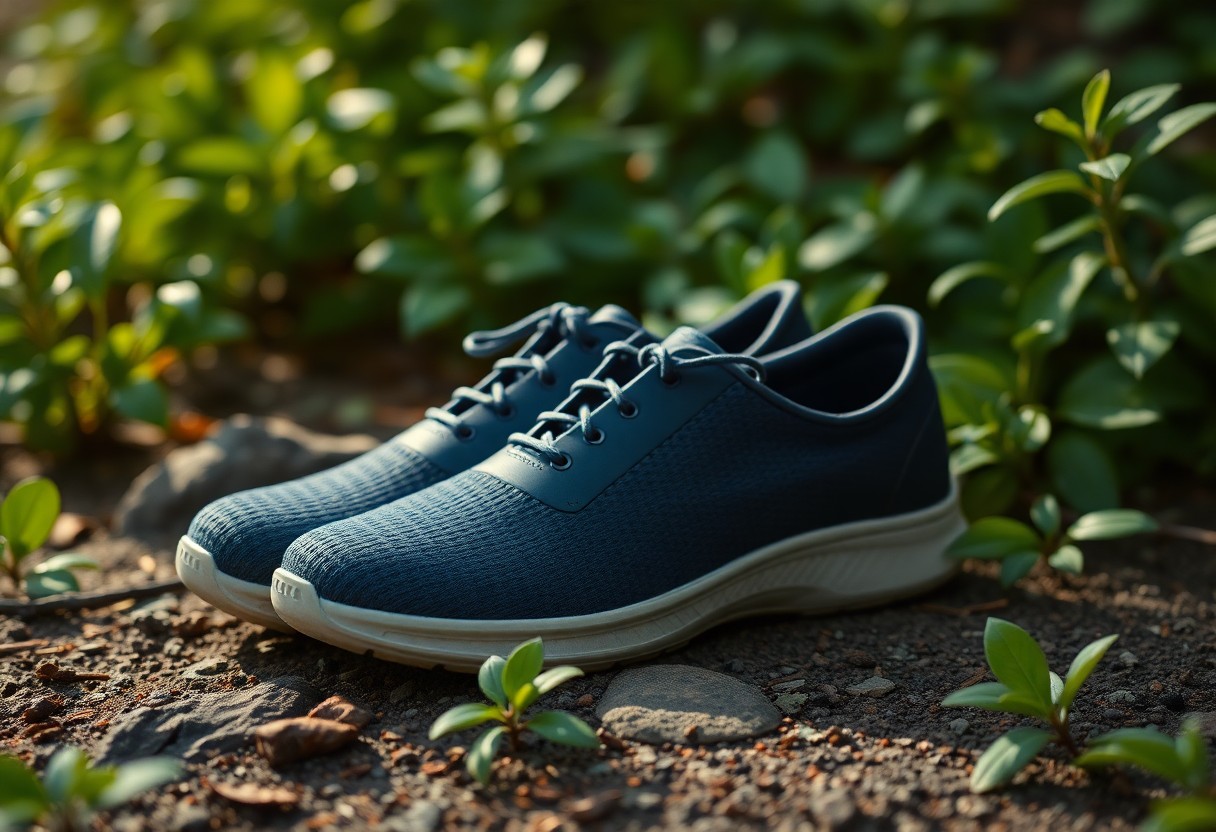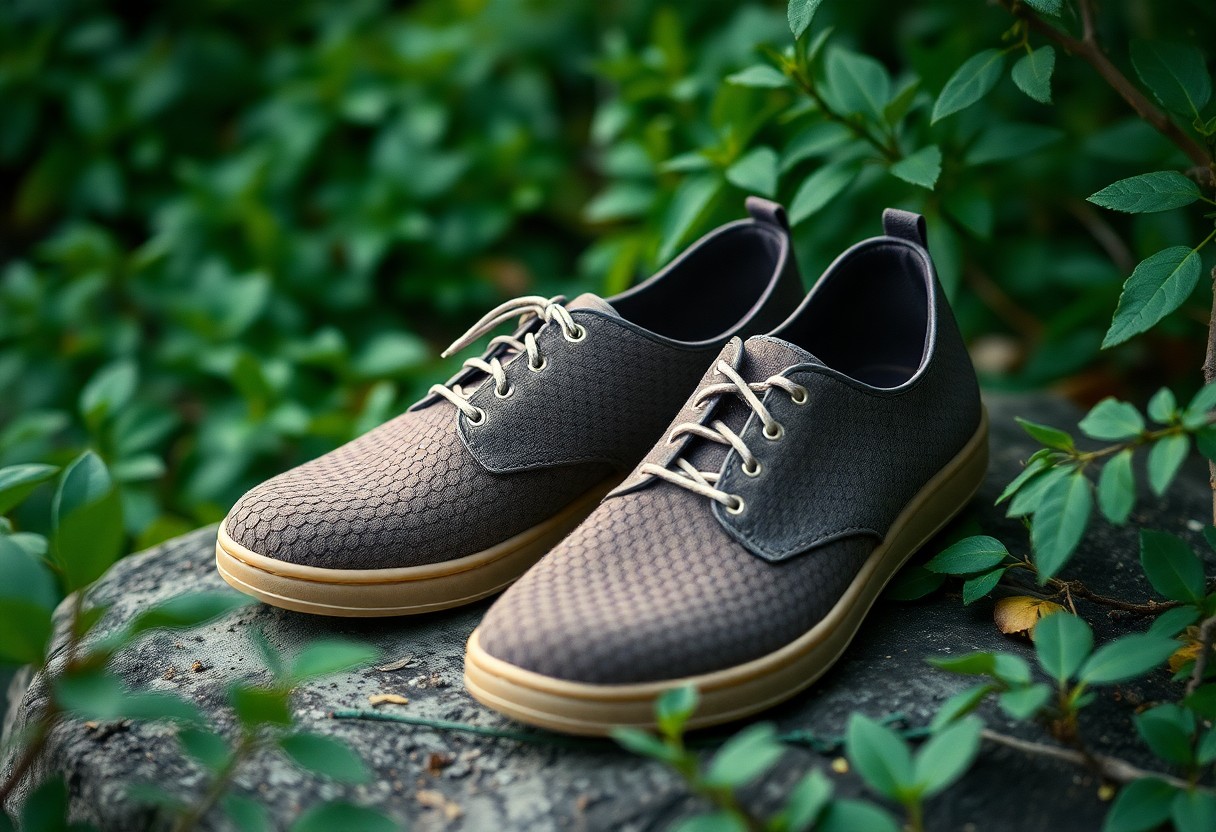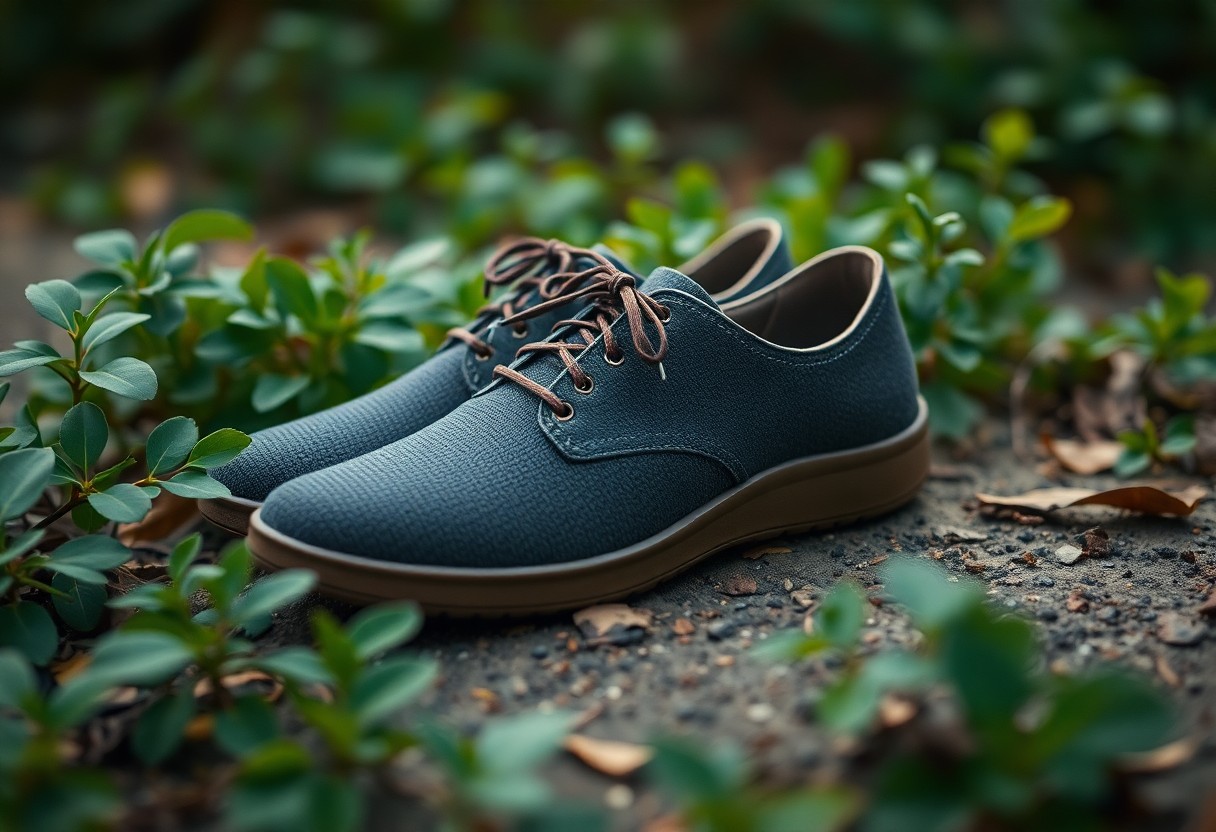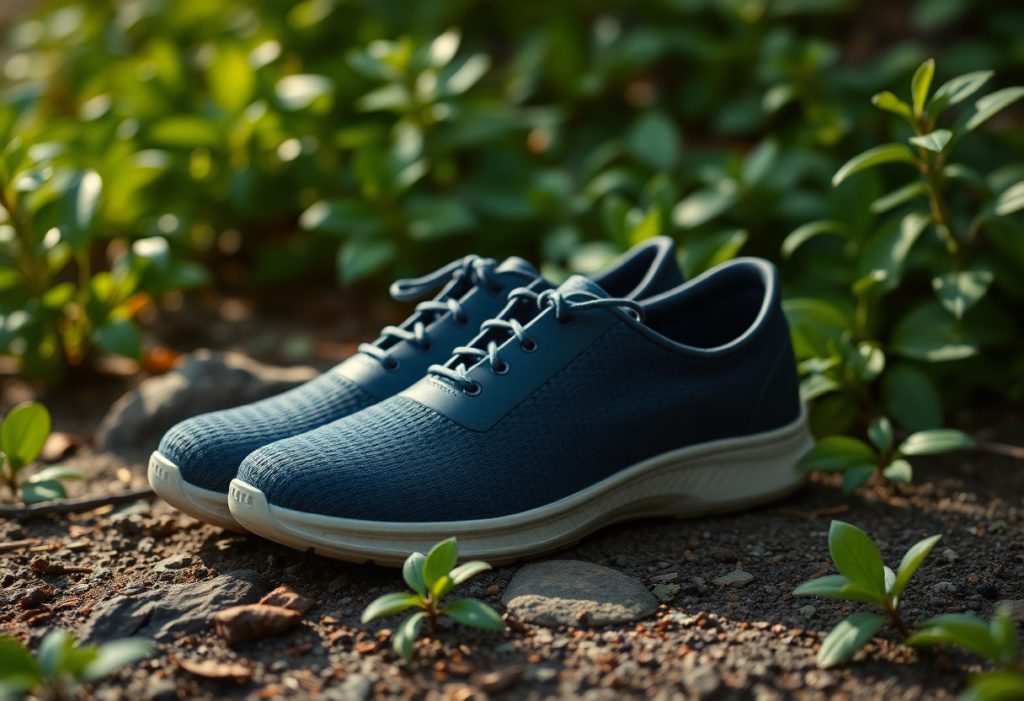As the demand for footwear that embodies personal values continues to grow—emphasizing characteristics such as minimalism, functionality, and environmental consciousness—Xero Shoes has established itself as a standout brand in this arena. Their footwear uniquely fuses barefoot flexibility with eco-friendly materials, which include recycled soles and plant-based dyes. This raises an important question: just how sustainable are these shoes? Xero Shoes promotes carbon-neutral shipping and durable designs intended to reduce waste; however, the presence of certain synthetic elements does pose challenges. By selecting Xero Shoes, you are making a conscientious choice towards sustainability while being aware of your environmental footprint, even if some compromises are necessary. If you are in search of footwear that prioritizes eco-friendly practices, here are essential insights to consider.
Uncovering the Advantages of Eco-Friendly Footwear Choices
In contrast to traditional footwear, which often relies on synthetic materials and harmful manufacturing processes, eco-friendly footwear is meticulously crafted with sustainability in mind throughout every phase of production. These forward-thinking shoes make use of recycled, biodegradable, or plant-based materials, which significantly curtail waste and carbon emissions. For enthusiasts of the barefoot movement, brands such as Xero Shoes seamlessly integrate this philosophy into their minimalist designs, allowing wearers to tread lightly on our planet—akin to walking with a lighter footprint, both in a physical and environmental sense.
Defining Eco-Friendly Footwear and Its Principles
At its essence, eco-friendly footwear encompasses shoes made from sustainable materials like organic cotton and natural rubber, while adhering to ethical manufacturing practices. These products intentionally avoid toxic dyes, excessive packaging, and non-recyclable components, ensuring that your purchasing choices contribute to healthier ecosystems and equitable labor standards. It is vital to recognize that it's not only about the shoes you wear, but also the processes involved in their creation.
The Rise of Minimalist Footwear Designs in Modern Fashion
Minimalist designs, such as barefoot shoes, have gained significant traction as an alternative to conventional cushioned footwear, owing to their natural feel and environmental advantages. By stripping away superfluous materials, these shoes greatly decrease waste and energy consumption, perfectly embodying the mantra of “less is more.” This trend is prominently seen in brands like Xero Shoes, which utilize thin, durable soles and lightweight fabrics, thereby reducing resource utilization. This evolution signals a growing awareness that simplified designs can effectively diminish your carbon footprint without compromising practicality.
For instance, Xero Shoes employs lightweight materials and innovative manufacturing techniques to produce footwear that not only feels comfortable but also respects the environment. This thoughtful approach resonates with individuals who prioritize sustainability in their lifestyle choices.
The Essential Role of Sustainable Practices in the Footwear Industry
The shoe production process is a significant contributor to pollution and landfill waste, with billions of pairs discarded every year. Adopting sustainable practices, such as utilizing recycled plastics and water-based adhesives, can help mitigate these issues. By choosing eco-friendly alternatives, you support innovative practices that safeguard ecosystems and minimize harm. Nonetheless, it is crucial to recognize that the stakes are high: the fast fashion industry's dependence on synthetic materials leads to microplastic pollution and resource depletion. In contrast, sustainable brands prioritize longevity and circularity, ensuring that your footwear does not exacerbate the existing problem.
Investigating Sustainable Materials Utilized in Xero Shoes
If you are in pursuit of eco-friendly barefoot shoes, Xero Shoes highlights sustainability by employing recycled PET and hemp, effectively reducing waste and environmental impacts. Their dedication to green alternatives guarantees that your footwear aligns with your values—like walking with a lighter footprint both literally and environmentally.
Eco-Friendly Laces Made from Recycled PET
Sustainable practices can begin on a small scale, and the laces used by Xero Shoes are crafted from 100% recycled PET, which repurposes plastic waste into durable, functional components. By opting for these laces, you assist in diverting plastic from landfills while benefiting from performance that endures, contributing to a cleaner planet.
The Environmental Benefits of Using Hemp Uppers
The ecological advantages associated with Xero Shoes’ hemp uppers are considerable. Hemp is a low-water, pesticide-free crop recognized for its capability to rejuvenate soil health. Its natural breathability and strength make it an ideal choice for barefoot shoes, providing comfort without compromising the Earth. Choosing hemp promotes a cleaner future due to its rapid growth and carbon-sequestering attributes. Unlike synthetic fabrics, hemp naturally biodegrades, reducing long-term waste accumulation. Additionally, its antimicrobial properties help maintain freshness in your shoes for extended periods.
When comparing hemp to traditional materials, the differences are notable:
| Hemp | Requires 50% less water than cotton |
| Synthetics | Derived from fossil fuels, non-biodegradable |
Evaluating the Environmental Impact of Minimalist Footwear Design
Xero Shoes’ minimalist designs not only reduce material waste but also contribute to a decreased carbon footprint by requiring fewer resources during production. The streamlined design process means less energy consumption in manufacturing, and the absence of excessive padding or synthetic layers significantly lessens contributions to landfills. Choosing minimalist footwear supports a design philosophy that prioritizes efficiency and sustainability, similar to walking with a lighter footprint both in a literal and environmental context.
Utilizing Lightweight Materials for Enhanced Sustainability
The environmental benefits of Xero Shoes are clearly visible through their lightweight, low-impact materials, including recycled rubber soles and vegan-friendly fabrics. These choices alleviate the pressure on natural resources while still providing high performance. You'll discover that these materials also assist in reducing transportation emissions, as lighter shoes necessitate less fossil fuel during shipping, contributing to a more sustainable planet.
The Durable Nature of Xero Shoes
In addition to their eco-friendly materials, Xero Shoes are designed for long-lasting use, decreasing the need for frequent replacements. The reinforced stitching and high-quality rubber outsoles are engineered to resist wear and tear, ensuring your shoes remain functional for many years. This durability directly translates to reduced landfill waste, making them a smart investment for sustainable living.
Indeed, Xero Shoes’ commitment to durability is underscored by a 5,000-mile sole warranty, highlighting their dedication to minimizing environmental impact. Fewer replacements lead to lower resource consumption, and their repairable design allows you to prolong the life of your shoes even further. For eco-minded consumers, this combination of resilience and sustainability is truly transformative.
Deciphering Certifications and Ethical Manufacturing Practices
Xero Shoes again demonstrates its commitment to sustainability by complying with rigorous certifications and ethical manufacturing standards. Their transparency in sourcing and production ensures that your barefoot shoes align with eco-friendly values. From carbon-neutral shipping to recycled materials, they prioritize minimizing environmental damage while delivering high-performance footwear. Like walking with a lighter footprint—both literally and environmentally—their efforts reflect a genuine commitment to eco-conscious practices.
The Importance of Fair Trade Certification
By choosing Fair Trade-certified materials, Xero Shoes actively champions ethical labor conditions and fair wages for workers. Your purchases support community empowerment and the promotion of social equity. While not all of their products bear this certification, their ongoing efforts to enhance supply chain ethics showcase substantial progress toward a more responsible future.
Understanding PETA-Approved Vegan Certification
Impact is paramount, and Xero Shoes’ PETA-Approved Vegan certification guarantees that your footwear is 100% free from animal-derived materials. This certification aligns with a cruelty-free lifestyle while simultaneously reducing the environmental impact associated with leather production. Their vegan selections illustrate that it is possible to uphold ethical standards without sacrificing performance.
Furthermore, PETA’s approval encompasses not only material sourcing but also a thorough audit of supply chains to ensure that animal exploitation is absent. Xero Shoes’ dedication in this area means you can trust their claims, avoiding common greenwashing pitfalls prevalent in the industry. For eco-conscious shoppers, this certification adds an extra layer of reassurance regarding your sustainable choices.

Real-Life Experiences: A Case Study on Sustainability
Many barefoot shoe enthusiasts have expressed how Xero Shoes resonate with their eco-conscious beliefs, valuing the brand’s minimalist design and sustainable materials. Whether concentrating on waste reduction or opting for vegan-friendly selections, users underscore how these choices reflect their commitment to a greener lifestyle—like walking with a lighter footprint, both literally and environmentally.
Assessing Lifecycle Impact
Xero Shoes is dedicated to minimizing environmental harm throughout every phase of their product lifecycle, from manufacturing to eventual disposal. Their durable construction enhances wearability, while recyclable components help lessen landfill contributions. You will find that their lifecycle approach strikes a balance between performance and eco-friendly practices.
Insights from Sustainability Advocates
Feedback from eco-conscious consumers shows strong support for Xero Shoes’ transparency and ethical sourcing. Advocates highlight the brand’s initiatives, such as utilizing recycled materials, which deeply resonate with their personal sustainability objectives.
Upon further examination of these testimonials, it becomes clear that durability and low-carbon manufacturing are frequently cited as standout features. However, some advocates suggest that there is room for advancement in end-of-life recycling programs, encouraging the brand to innovate further in circular practices.

The Power of Consumer Choices in Promoting Sustainability
Sustainable habits begin with you. Your choices as a consumer shape market demand, influence brands, and catalyze the transition to eco-friendly practices. By selecting products like Xero Shoes, you are backing companies that prioritize minimal waste and ethical sourcing, exemplifying how small actions can lead to significant change.
Understanding the Environmental Impacts of Purchasing Decisions
Before making a purchase, reflect on your environmental impact. Every transaction sets off a chain reaction—from resource extraction to landfill waste. Choosing barefoot shoes crafted from recycled materials or biodegradable components can significantly lessen your impact, reinforcing the idea of walking with a lighter footprint—both literally and environmentally.
The Importance of Consumer Education and Awareness in Sustainability
Grasping the lifecycle of your footwear is vital. The more knowledgeable you are, the better your choices become. Brands like Xero Shoes openly share their processes, aiding you in avoiding greenwashing and aligning with genuine sustainability.
Consumer awareness extends beyond superficial labels. Investigating materials, labor conditions, and carbon footprints empowers you to make informed decisions. Ignorance fosters unsustainable practices, while knowledge promotes accountability and progress in sustainable consumerism.
The Growing Demand for Sustainable Products
The surging interest in eco-friendly footwear reflects a broader cultural shift. As more individuals prioritize sustainability, brands are responding with innovations like plant-based soles and zero-waste packaging, demonstrating that your consumer choices can lead to meaningful change within the industry.
Your purchasing behaviors shape market dynamics. Your preference for sustainable options pressures competitors to adapt or risk obsolescence. Fast fashion and synthetic materials are on the decline as conscious consumers advocate for alternatives, progressively fostering a healthier planet.
The Financial Implications of Choosing Sustainable Footwear
Choosing eco-friendly barefoot shoes, such as those from Xero Shoes, highlights a growing trend toward sustainable consumerism. While these shoes may require a higher initial investment compared to conventional alternatives, their durability and minimal environmental impact often justify the cost. By supporting brands that prioritize ethical materials and production methods, you contribute to a circular economy that mitigates waste and encourages fair labor practices. Like walking with a lighter footprint—both literally and environmentally—your purchase aligns with values that benefit both the planet and future generations.
Evaluating Cost Factors for Consumers
The initial price of sustainable barefoot shoes may be higher than mass-produced alternatives, a factor that influences your decision. Nevertheless, their extended lifespan and repairability often offset this initial cost over time. Brands like Xero Shoes focus on quality materials, leading to fewer replacements and less waste. Although the initial cost may give you pause, the value-per-wear makes them a sensible financial choice for eco-aware consumers.
Long-Term Benefits of Investing in Eco-Friendly Products
Beyond lowering your carbon footprint, eco-friendly barefoot shoes also offer health and financial advantages. Their natural designs promote improved posture and foot strength, potentially reducing medical expenses associated with inadequate footwear. By opting for sustainable solutions, you are also encouraging innovation in green materials, driving transformative change across the industry.
For example, Xero Shoes incorporates recycled and vegan materials that minimize resource depletion and pollution. Over time, your investment in these products contributes to normalizing sustainable practices, inspiring more brands to adopt eco-friendly methods. This ripple effect can yield broader environmental benefits, including reduced landfill waste and lower carbon emissions.
Market Trends and Future Expectations in Sustainable Footwear
Globally, the appetite for sustainable footwear is growing, with barefoot shoes captivating the interest of health- and eco-conscious consumers. Brands like Xero Shoes are at the forefront, leveraging biodegradable and recycled materials to satisfy this increasing demand. As awareness expands, we can anticipate more competitive pricing, making eco-friendly options accessible to a wider audience.
Trends indicate a shift towards transparency, with consumers demanding detailed insights regarding ethical sourcing and production methods. This demand for accountability is reshaping the industry, despite challenges such as greenwashing. By staying informed, you can ensure that your choices align with sustainability objectives, making purchases that drive impactful change.
Navigating the Challenges of Sustainable Footwear Production
Despite the rising demand for eco-friendly footwear, producing sustainable barefoot shoes like Xero Shoes poses various challenges. The limited availability of certified materials, high production costs, and the need for durable yet biodegradable designs complicate the process. You may wonder if these hurdles compromise sustainability—fortunately, brands committed to innovation are actively seeking solutions that ensure your shoes align with your values.
Challenges in Sourcing Sustainable Materials
One of the most significant obstacles is sourcing ethically produced, eco-friendly materials. Each component must meet stringent environmental criteria, from recycled rubber soles to plant-based dyes. You will appreciate that Xero Shoes prioritizes suppliers with transparent practices; however, scaling these responsibly remains a considerable challenge for the industry.
Finding the Balance Between Cost and Quality in Sustainable Production
Behind every sustainable shoe lies a complex equation: affordability versus durability. Eco-materials usually come at a higher price, yet cutting corners can jeopardize longevity—something you certainly won't accept in footwear designed for prolonged use. Brands must navigate this balance without placing the entire burden onto the eco-aware consumer.
Challenges can arise when budget-friendly alternatives compromise sustainability. For instance, cheaper synthetic options may lower prices but undermine biodegradability. Xero Shoes tackles this issue by enhancing production efficiency, demonstrating that ethical choices do not always have to lead to exorbitant prices.
The Footwear Industry’s Reluctance to Embrace Change
A significant barrier is the footwear industry’s hesitance to relinquish fast-fashion models. Traditional manufacturers often prioritize profit over ecological responsibility, complicating the ability of sustainable brands to thrive. Your support for eco-friendly companies like Xero Shoes is vital for instigating systemic change.
Progress may appear incremental due to entrenched practices and lobbying against environmental regulations, but consumer demand—driven by your choices—is propelling brands towards greater transparency. Change is happening, but it requires continuous advocacy from consumers who prioritize sustainability over convenience.
Innovations Driving Eco-Friendly Footwear Technology
Stay ahead in sustainability with Xero Shoes’ groundbreaking advancements in eco-friendly footwear. Their innovations focus on minimizing environmental impact while ensuring superior performance, blending comfort with eco-conscious design. From recycled materials to low-waste production methods, these shoes enable you to walk with a lighter footprint—both literally and environmentally.
Advancements in Sustainable Material Usage
Xero Shoes incorporates recycled polyester, hemp, and plant-based dyes to reduce the ecological harm associated with traditional materials and modern eco-friendly alternatives. These materials help decrease water usage and carbon emissions, providing you with durable footwear that does not compromise the planet.
Biodegradable Components for a Sustainable Tomorrow
Leading the charge in sustainability, Xero Shoes integrates plant-based outsoles and natural rubber, which decompose more quickly than synthetic alternatives. This strategy effectively diminishes long-term waste, allowing your footwear choices to align with a circular economy.
Innovations in biodegradable technology ensure that these components break down efficiently, leaving minimal environmental traces. By opting for shoes with these characteristics, you actively contribute to alleviating landfill burdens and minimizing microplastic pollution.
Harmonizing Technology and Eco-Consciousness
At the intersection of innovation and sustainability, Xero Shoes employs 3D printing and precise engineering to minimize material waste. Their processes emphasize efficiency, guaranteeing that every step you take is supported by sustainable technology.
Sustainability is not just a trend; it is ingrained in their operational ethos. From solar-powered factories to carbon-neutral shipping, Xero Shoes exemplifies how high-performance footwear can coexist with environmentally friendly practices, empowering you to make a positive impact with every purchase.
Comparing Xero Shoes to Competing Eco-Friendly Brands
When assessing Xero Shoes alongside other eco-friendly barefoot brands, you will observe notable distinctions in materials, durability, and approaches to sustainability. Here’s a concise overview:
Comparison of Xero Shoes with Competing Brands
| Xero Shoes | Utilizes recycled materials, offers vegan options, and emphasizes minimalism. |
| Competitors (e.g., Vivobarefoot, Merrell) | Provide similar eco-claims but may lack transparency in sourcing and durability. |
Insight into Similar Eco-Friendly Brands
Upon exploring the marketplace, brands such as Vivobarefoot, Merrell, and Freet prioritize sustainability in their product offerings. Here’s how they compare:
Eco-Friendly Barefoot Shoe Brands
| Vivobarefoot | Offers wildhide leather and recycled materials, but at a premium pricing. |
| Merrell | Combines eco-materials with traditional materials, striking a balance between cost and sustainability. |
Assessing Strengths and Weaknesses of Each Brand
To determine which brand aligns with your needs, consider their respective advantages and disadvantages. Xero Shoes excels in affordability and transparency, while Vivobarefoot offers premium materials at a higher cost. Merrell, in contrast, may trade off full sustainability for durability.
In conclusion, each brand presents its unique trade-offs. Xero’s commitment to vegan and recycled materials stands out, but some users have reported thinner soles compared to Vivobarefoot’s sturdier designs. Merrell’s hybrid approach appeals to those seeking a compromise, but may not fully satisfy purists.
Positioning Xero Shoes in the Eco-Friendly Footwear Market
While Xero Shoes may not yet match its competitors in brand recognition, it has carved out a niche by marrying eco-consciousness with affordability. Although not as widely acknowledged as Vivobarefoot, its loyal customer base values its minimalist philosophy and sustainable practices.
Moreover, Xero’s direct-to-consumer model helps maintain competitive pricing, although its limited retail presence may deter some potential buyers. Their commitment to a transparent supply chain and carbon-neutral initiatives makes them an attractive choice for eco-conscious consumers, even amidst ongoing discussions about durability.
Community Engagement and Environmental Initiatives by Xero Shoes
Xero Shoes goes beyond the typical role of a footwear brand by actively promoting eco-conscious values. They engage in initiatives that resonate with their sustainability mission, from waste reduction efforts to supporting various environmental causes. By prioritizing transparency, they encourage you to join them on their journey towards a greener future—like walking with a lighter footprint both literally and environmentally.
Xero Shoes’ Commitment to Environmental Programs
While any brand can claim to be sustainable, Xero Shoes substantiates this with concrete actions. They collaborate with programs like 1% for the Planet, donating a portion of their sales to environmental nonprofits. Their commitment to reducing carbon emissions and utilizing recycled materials illustrates their serious intent to lessen their ecological footprint—allowing you to feel good about your purchase.
Fostering a Community Centered Around Sustainability
Any movement toward eco-friendliness thrives on shared values, and Xero Shoes cultivates this connection among like-minded individuals. Through social media, events, and educational content, they empower you to make informed choices, transforming customers into advocates for sustainable living.
Additionally, Xero Shoes regularly hosts challenges and workshops that inspire deeper engagement, reinforcing that sustainability is not just a passing trend—it’s a lifestyle. By nurturing this community, they amplify the impact of every small step taken towards greener practices.
Encouraging Active Participation from Consumers
The brand transcends mere advocacy for sustainability; it invites you to be part of the solution. From recycling old shoes to sharing tips on reducing waste, Xero Shoes equips you with the necessary tools to effortlessly lessen your environmental footprint.
Environmental responsibility starts with awareness, and Xero Shoes simplifies this journey. Their #XeroImpact campaign encourages you to share your eco-friendly experiences, creating a ripple effect that motivates others. When you choose Xero, you are not just purchasing shoes; you are participating in a larger movement.

Frequently Asked Questions Regarding Sustainable Footwear
You might be curious about the authentic sustainability of barefoot shoes. Xero Shoes places a strong emphasis on eco-friendly practices, utilizing recycled rubber and vegan-friendly options. Their commitment to durability leads to fewer replacements, thus reducing waste. However, it is crucial to keep in mind that no brand is without flaws—always consult their transparency reports for comprehensive impact insights.
Common Questions About Eco-Friendly Materials
You may ask: “Are these materials genuinely sustainable?” Xero Shoes employs plant-based dyes, recycled soles, and breathable meshes. While synthetic blends are included, their focus on low-impact production assists in mitigating carbon footprints—like walking with a lighter footprint, both literally and environmentally.
Debunking Misconceptions Surrounding Minimalist Shoes
In light of ongoing discussions, you may encounter claims such as “barefoot shoes lack support.” In truth, they are designed to naturally strengthen your feet. Misunderstandings regarding discomfort often arise from insufficient transition periods—your body needs time to adjust to this change.
Therefore, minimalist shoes are not just a trend, but a healthier alternative when utilized correctly. Research indicates improved posture and reduced joint stress, but rushing into wearing them can result in strain. It is essential to listen to your body and transition gradually.
Recognizing the Importance of Product Certifications
When evaluating material safety, look for certifications like Bluesign® or OEKO-TEX®, which ensure the absence of toxic, responsibly sourced materials. Xero Shoes’ compliance with these standards signifies a trustworthy commitment, but it’s prudent to verify claims—greenwashing is prevalent.
Consequently, certifications are more than just labels; they serve as your protection against harmful practices. Prioritize brands that undergo third-party audits, as these validate true dedication to sustainability, rather than mere marketing hype.
Envisioning the Future of Sustainable Footwear
In the footwear industry, sustainability has transitioned from an exclusive trend to an essential standard. Brands like Xero Shoes are at the forefront with minimalist designs and eco-friendly materials, demonstrating that comfort and ecological responsibility can coexist. The future holds promise for further innovations in biodegradable soles, recycled fabrics, and carbon-neutral production, all contributing to reducing your environmental impact—like walking with a lighter footprint, both literally and environmentally.
Trends Fueling Eco-Friendly Innovations
To meet the rising demand, brands are adopting circular economy principles, including shoe recycling programs and plant-based materials. Innovations in 3D knitting and algae-based foams are aimed at minimizing waste, while supply chain transparency ensures you are informed about your purchases. These trends reflect a movement towards footwear that is as kind to the Earth as it is to your feet.
Industry Predictions and Future Outlooks
In the forthcoming decade, anticipate biodegradable shoes to become mainstream, with brands competing for the lowest carbon footprint. Customization through AI may help reduce overproduction, and vegan leather alternatives could dominate the market. Your consumer choices will increasingly shape industry standards, urging brands to adopt greener practices.
Moreover, as regulations tighten, companies that do not embrace sustainable practices may face consumer backlash or legal penalties. The rise of carbon labeling will empower you to make informed decisions, transforming every purchase into a vote for the planet.
The Impact of Consumer Activism on Sustainability
One of the most potent forces driving change is your voice. Social media campaigns and boycotts have pressured brands to abandon harmful practices, while grassroots movements demand accountability. By supporting ethical brands, you are not merely buying shoes; you are igniting a revolution.
Eco-friendly activism has already led to bans on toxic glues and child labor in supply chains. However, greenwashing continues to be a concern, so remaining informed is essential. Your vigilance ensures that companies prioritize real impact over superficial marketing tactics.
Final Reflections on Sustainable Footwear
In conclusion, Xero Shoes offers a reliable option for eco-conscious consumers seeking barefoot footwear. Their focus on recycled materials, minimal waste, and durable designs resonates with your values of reducing environmental impact. Like walking with a lighter footprint—both literally and environmentally—their approach effectively balances performance with planet-friendly practices. While perfection may be unattainable, Xero Shoes remains committed to sustainability, positioning itself as a formidable contender in the barefoot shoe market. If you seek footwear that supports your active lifestyle while honoring the Earth, these shoes are definitely worth considering.
The Article Eco-Friendly Barefoot Shoes: How Sustainable Are Xero Shoes? appeared first on My Shoes Finder
The Article Sustainable Xero Shoes: Are They Truly Eco-Friendly? Was Found On https://limitsofstrategy.com







